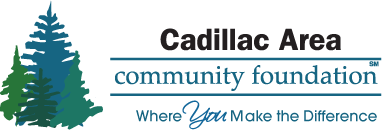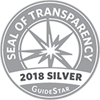February 2020
Focusing on what really matters.
At the end of January the Cadillac Area Community Foundation (CACF), CACF Youth Advisory Committee, the Missaukee Area Community Foundation (MACF), and MACF Youth Advisory Committee partnered to help fund a student program. The program, presented by national speaker Tony Hoffman, covered his battles with anxiety, depression, drug addiction, and mental health. On January 29th over 1000 students from 7 schools heard Tony Hoffman’s inspirational message of overcoming his struggles with homelessness, suicidal thoughts, drug addiction, bad choices, going to prison; and then turning his life around and participating in the 2016 Rio Olympic Games as a coach.
Many of the issues raised by Tony Hoffman in his program were also brought to light in a recent survey of area youth undertaken by the CACF Youth Advisory Committee. A total of 617 Cadillac Area Public Schools (CAPS) students participated in the surveying that took place in January 2020.
33% (270) of CAPS students in grades 9-12 participated in the survey. These survey participants feel that the top issues currently affecting them are stress from school (91.1%), mental health (75.3%), and stress from friends (54.4%). The survey also revealed substance abuse that included vaping ( 73.1%), marijuana use (15%), and alcohol abuse (9.6%).
73% (347) CAPS students in the 7& 8 grade responded to the same survey. They revealed that stress from school (80.5%), stress from friends (44.1%), and mental health issues (41.4%) are already a concern to them in the lower grades. Substances most abused by these survey participants included vaping (89.2%), marijuana use (38.5%), and alcohol use (26.2%).
These numbers are alarming! So where do we go from here?
Recently, the Safe and Healthy Communities Coalition was awarded a $26,000 grant to attack the opioid epidemic/vaping Wexford Missaukee area. As the Adult Student Liaison for the Coalition, I have contacted 7 area schools to form student committees which will communicate an anti-drug message that is consistent throughout the 2 counties. We have $1000 set aside to raise awareness by printing posters and producing a video that will reach as many students as possible. The top priorities this campaign will address are vaping, marijuana use, underage drinking, and opioid use.
Prescription drugs rated very low on both surveys, but, teenage opioid addiction is one of the most tragic and deadly aspects of the national opioid epidemic. Teens often use these drugs to get high or to relax, cope with stress, help them sleep, boost energy, or improve concentration at school. This issue cannot be ignored. Teens can become psychologically dependent in a couple of days, physically dependent within a month, and completely addicted in less than a year.
Some of the messages that the campaign will focus on include:
After just one puff researchers at the University of Pennsylvania found vaping made an immediate change in the body’s blood vessels and circulation, even when there was absolutely no nicotine present.
Lasting changes in the brain caused by alcohol use that starts in adolescence are the result of epigenetic changes that alter the expression of a protein crucial for the formation and maintenance of neural connections in the amygdala – the part of the brain involved in emotion, fear, and anxiety.
Negative, short-term effects associated with the use of marijuana can include extreme paranoia, anxiety and panic attacks. Effects on attention, memory, and learning can last for days or weeks. And marijuana carries similar risks as smoking tobacco due to carcinogens present in all smoke.
The campaign will focus on anonymous stories like this one:
From just one pill…my first prescription opioid pill came from a girlfriend, who said that it was safe and harmless because it came from her doctor. But that pill flipped a switch inside me and that took away emotional pain and made me numb. I knew hard drugs were illegal and taboo, but I didn’t think that these pills were dangerous. I had no idea that I could actually get addicted—I just knew that I felt sick when I stopped taking them.
Students Matter,
Doreen


